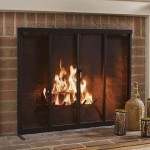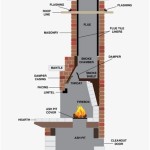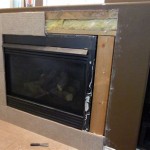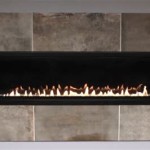Types of Stone for Fireplace Surround: Enhancing the Hearth's Charm
The fireplace surround is an integral part of any hearth, framing the fire and adding visual interest to the space. The choice of stone for this surround affects not only the aesthetics but also the durability and functionality of the fireplace. Here's a guide to the different types of stone commonly used for fireplace surrounds, along with their unique properties.
Limestone
Limestone is a sedimentary rock composed primarily of calcium carbonate. It is a popular choice for fireplace surrounds due to its soft, creamy color and ease of carving. Limestone is relatively porous, so it can be susceptible to staining and etching. However, it is durable and heat-resistant, making it a suitable choice for fireplaces with moderate usage.
Marble
Marble is a metamorphic rock formed when limestone undergoes extreme heat and pressure. It is renowned for its elegant appearance and comes in a range of colors, from pure white to rich hues of green, pink, and black. Marble is more porous than granite but less so than limestone, making it resistant to staining and etching. It is also heat-resistant, but prolonged exposure to high temperatures can cause cracking or discoloration.
Granite
Granite is an igneous rock composed primarily of quartz, feldspar, and mica. It is the hardest and most durable of the stones commonly used for fireplace surrounds. Granite is highly resistant to heat, scratches, and stains, making it an excellent choice for high-traffic areas and fireplaces that are frequently used. However, granite is also the most expensive option and can be challenging to carve.
Slate
Slate is a metamorphic rock formed from shale or mudstone. It is characterized by its layered structure and distinctive dark gray or black coloration. Slate is highly durable and relatively affordable compared to other stone options. It is also fireproof and can withstand extreme temperatures. However, slate can be prone to chipping and cracking if not properly installed or maintained.
Sandstone
Sandstone is a sedimentary rock composed primarily of sand grains that have been cemented together over time. It comes in a wide range of colors, including beige, brown, red, and pink. Sandstone is durable and heat-resistant, but it is more porous than granite or marble and can be susceptible to staining. With proper sealing, sandstone can provide a rustic and natural look to the fireplace surround.
Conclusion
Choosing the right stone for your fireplace surround depends on various factors, including aesthetics, durability, and budget. Limestone offers a classic and affordable option, while marble provides elegance and a higher level of resistance to staining and etching. Granite is the most durable and heat-resistant, making it ideal for areas with heavy fireplace usage. Slate and sandstone offer unique textures and affordability but may require more care in terms of maintenance and sealing. By considering these different types of stone, you can select the perfect material to enhance the beauty and functionality of your hearth.

11 Stone Veneer Fireplace Surround Design Trends Where To Buy

Professional Stonework Stone Fireplace Surround Hearths

Natural Stone Great Choice New Fireplace Upgrade

How To Pick The Best Stone For Fireplaces Stoneworx

Guide For Choosing The Right Type Of Stone Your Fireplace Marblebee

Stone For Fireplaces What Are The Best Options In 2024 Marble Com

42 Stone Fireplace Styles That Will Add Warmth To Any Space Decoist

Dk Studio

The Diffe Types Of Stone Fireplace Guide Direct Fireplaces

Natural Stacked Stone Veneer Fireplace Ideas
Related Posts








